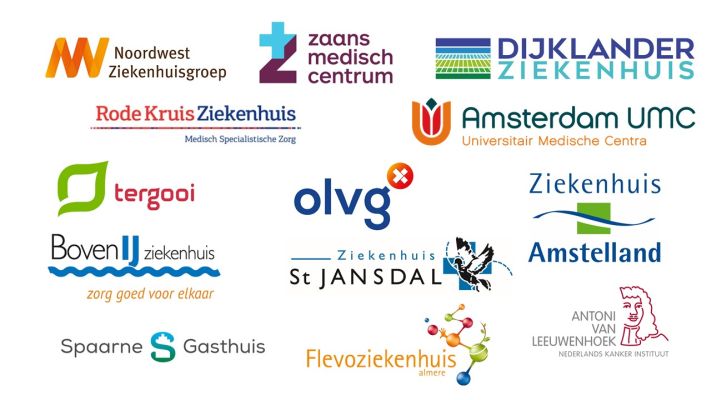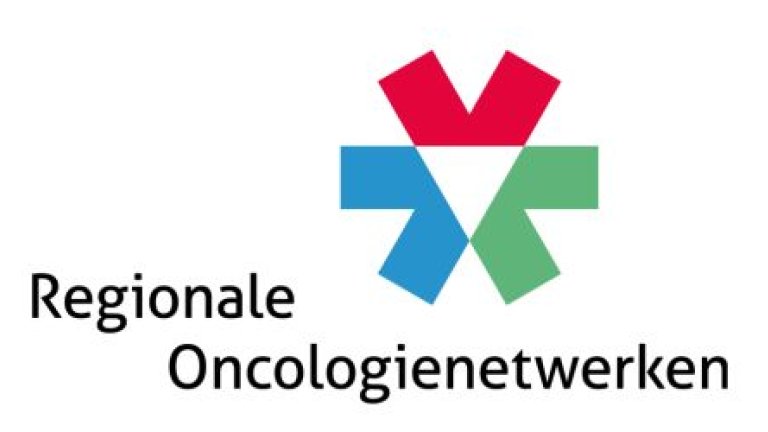Regional care pathways, supported by the national Citrien Fonds initiative, aim to provide the best care for every patient with gastro-intestinal cancer in the region. Myrte Gorris is a research associate in Gastroenterology and Hepatology at Cancer Center Amsterdam and the project leader for creating and establishing the gastrointestinal (GI) cancer care pathways for the region North Holland and Flevoland.
A regional “care pathway” organizes the care process for a specific group of patients for a distinct region in the Netherlands. Defining characteristics of care pathways include:
- evidence-based best medical practices;
- enhanced communication among the multidisciplinary healthcare team and with patients and their families;
- the identification of the appropriate resources at the appropriate regional location;
- the coordination of the care process by defining the roles and sequence of activities of the regional medical facilities, multidisciplinary care team, the patients and their relatives, and
- the documentation, monitoring, and evaluation of variables and outcomes to ensure continual improvement.
A regional care pathway for liver tumors
“Work for the liver tumor care pathway started about six months ago,” says Myrte Gorris. “There already was an established regional oncology network involving all 13 regional hospitals in North Holland and Flevoland. Through this network, we recruited members for a care pathway steering committee consisting of eight specialists.”
 Participating hospitals in the regional care pathway for liver tumors.
Participating hospitals in the regional care pathway for liver tumors.
This steering committee ultimately bears the responsibility for the regional care pathway. They are tasked with directing working groups which mutually debate and agree on specific treatment steps within the care pathway and its implementation. Myrte Gorris: “Initially, I provided an outline based on national treatment guidelines detailing the process from the initial diagnosis to cancer treatment with chemotherapy, irradiation or surgical intervention. The working groups then discussed these outlines, specified each step, and tailored treatment protocols – for example, where certain treatments would take place – according to the available regional resources and expertise.” The final version of the care pathway received approval from the steering committee and was officially implemented this month.
Members of the steering committee regional care pathway for liver tumors North Holland and Flevoland
- Dr. Rutger-Jan Swijnenburg - Committee Chair - Surgeon - Amsterdam UMC
- Dr. Niels Kok - Surgeon - the Netherlands Cancer Institute
- Dr. Simone Havenith, Medical Oncologist - Flevoziekenhuis
- Dr. Heinz-Josef Klümpen, Medical Oncologist - Amsterdam UMC
- Dr. Bart Takkenberg, Gastroenterologist and Liver Specialist - Amsterdam UMC
- Prof. Otto van Delden, Interventional Radiologist - Amsterdam UMC
- Dr. Edwin Jansen - Radiation Oncologist - the Netherlands Cancer Institute
- Dr. Hendrik Marsman - Surgeon – OLVG
A major milestone for regional care of patients with liver tumors
“The implementation of the regional care pathway for the optimal treatment of patients with tumors in the liver is a major milestone,” says Dr. Rutger-Jan Swijnenburg, surgeon of the liver and pancreas at Amsterdam UMC and chair of the steering committee. “We have now clearly defined at which medical centers patients with liver tumors are treated and what this treatment entails.”
Case managers from involved hospitals, who are easily accessible and in direct contact with patients, have also given important feedback for care pathway implementation. “These case managers are essential to keep the care paths running,” explains Dr. Swijnenburg. “They know the care pathway inside out and keep patients on track so they get the right care.” The care pathway also defines diagnostic quality standards and technical requirements of various medical tests. “That is important as we do not have to repeat any medical exams or scans. This makes it more patient-friendly as well as more efficient,” continues Dr. Swijnenburg.
Care pathway in a phone application
In line with current communication technologies, the regional care pathway for liver tumors is bolstered by a smartphone application that is only accessible by involved medical professionals. Dr. Swijnenburg: “The ‘Onco NH-FL’ app contains the contact information of all care providers for the treatment of liver tumors at regional hospitals. This really facilitates communication between centers.” It also contains a detailed overview of the care pathway so healthcare providers can identify the best therapy options and determine if referrals to other medical expertise centers are necessary for accurate diagnosis and optimal treatment.
Continued improvements
“The patient outcomes resulting from the regional care pathway will be reviewed annually to make improvements according to new insights and developments,” says Myrte Gorris.
To support clinical research, physicians at regional hospitals can also use the app to see if their patients are eligible to participate in clinical trials at one of the expertise centers. Myrte Gorris concludes that, with support of the data gathered by the Dutch Cancer Registry, “the steering committee will soon be able to assess the real life impact this regional care pathway is going to make for patients with liver tumors.”

For more information about the regional care pathway for liver tumors or the smartphone application, contact Myrte Gorris.
Text by Henri van de Vrugt

